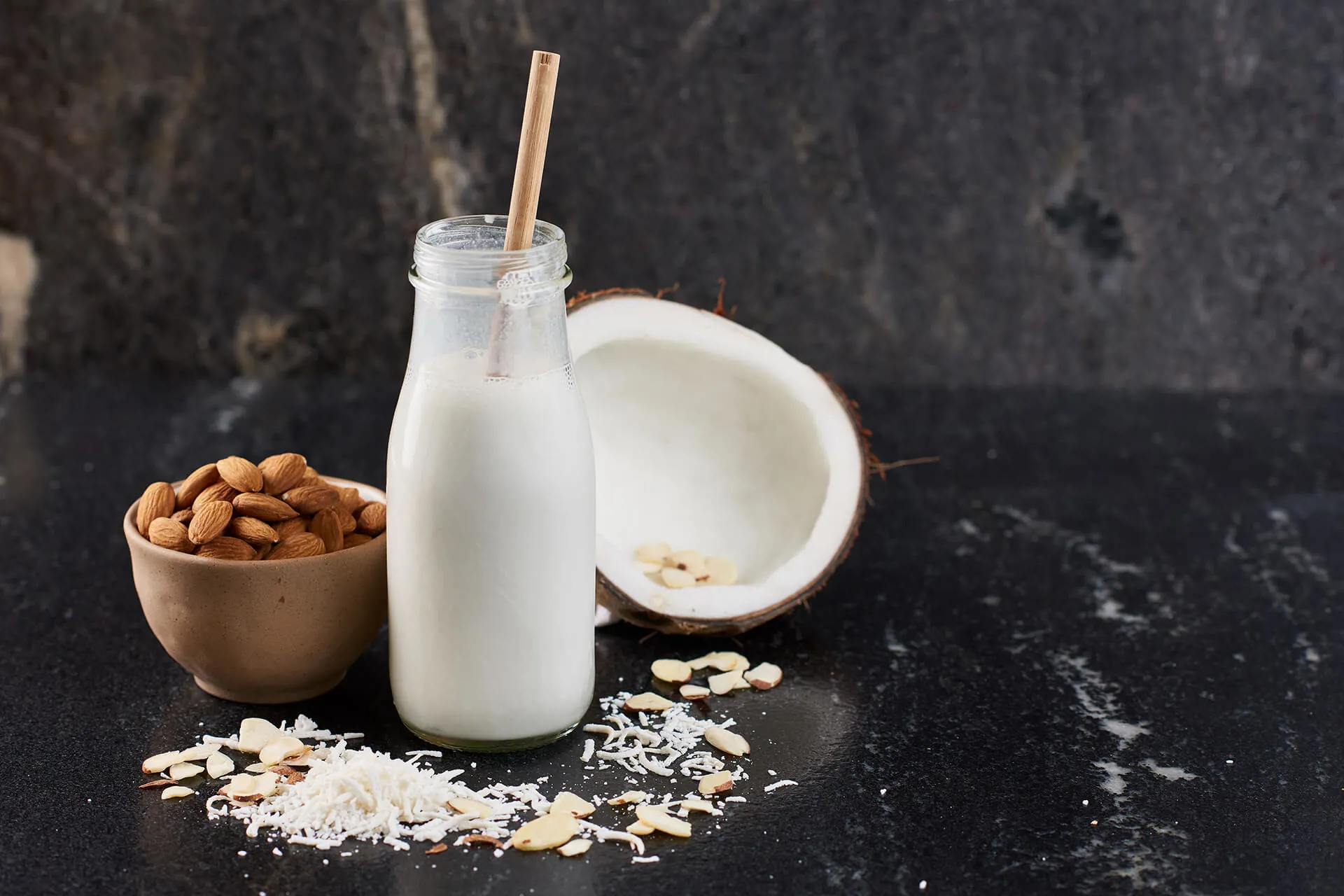
TECHNICAL ARTICLE
TECHNICAL ARTICLE
Palsgaard is introducing a clean-label stabiliser blend to help ensure plant-based yoghurts can match their dairy counterparts. In this article, Marilyn Tan, Application Technologist with Palsgaard Asia-Pacific, explains how this unique product offers several benefits to those hoping to excel in the thriving market for plant-based yoghurts:
"Plant-based yoghurts can develop syneresis during storage and distribution. Consumers can be put off by this because it means the yoghurt can have a watery layer on top. We have tested Palsgaard® AcidMilk 310 with various plant-based yoghurt recipes over extended periods of time, and our stabiliser blend significantly reduced water separation to the point where it would not be visible to consumers."
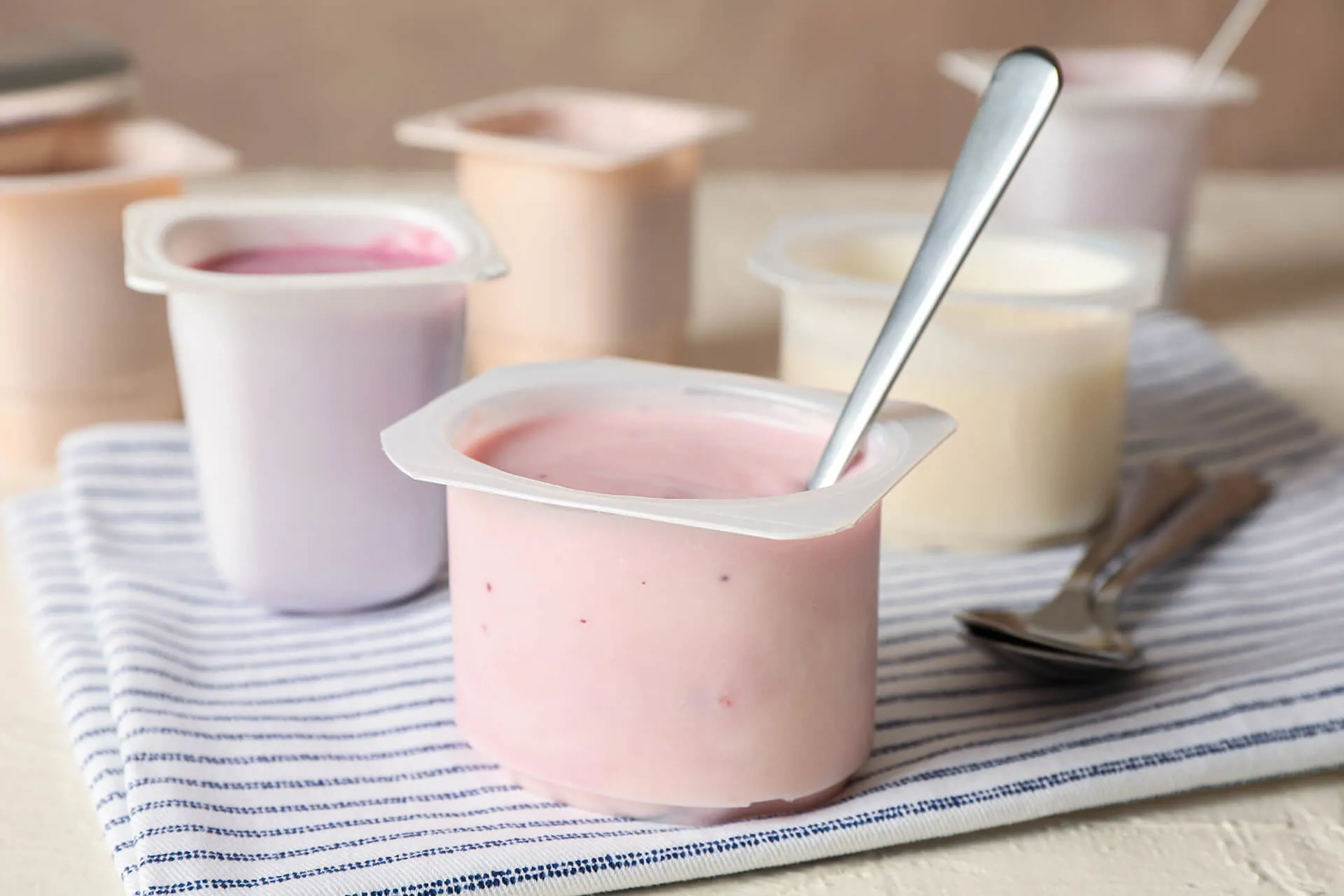
Plant-based yoghurts are popular right now but getting the stability, texture, and mouthfeel to match that of a dairy yoghurt is challenging, especially for manufacturers who want to follow the clean label route.
There are plenty of brand owners who are keen to tap into this market or improve their existing products, and Palsgaard can support this journey with a new solution for clean-label plant-based yoghurts.
It’s an exciting sector of the plant-based market but the wide choice of raw materials and increasing consumer demand means this is a challenging category for manufacturers, particularly when it comes to researching and launching products quickly.
Palsgaard’s clean-label stabiliser blend for plant-based yoghurts can help producers in many ways, as Marilyn Tan lists FIVE reasons why she believes manufacturers should have a closer look at Palsgaard® AcidMilk 310:
Palsgaard conducted a survey of 1,307 consumers in Mexico, France, Russia, the USA and Vietnam in 2021, which asked consumers what they felt about the current market for plant-based yoghurts, milk alternatives, and desserts.
The survey asked consumers if they had ever noticed water separation (known as syneresis) in their plant-based yoghurts, and a significant number (72%) said yes.
Marilyn says: “Plant-based yoghurts can develop syneresis during storage and distribution. Consumers can be put off by this because it means the yoghurt can have a watery layer on top. We have tested Palsgaard® AcidMilk 310 with various plant-based yoghurt recipes over extended periods of time, and our stabiliser blend significantly reduced water separation to the point where it would not be visible to consumers.”
Marilyn explains that when stored chilled for two months, none of the plant-based yoghurt samples she tested had noticeable syneresis.
The growth potential for this category is big.
It’s already a big sector globally; in 2020 the plant-based yoghurt market was worth USD 1.94 billion.
The picture is a positive one in many countries with plant-based yoghurts accounting for 50% of the total yoghurt market’s revenue share in Europe in 2019, and a global growth rate of 17.7% predicted from 2021 to 2026. If we look specifically at Asia, plant-based yoghurts are expected to grow by 20.2% between 2020 and 2027.
It’s clearly an important sector and essential therefore that manufacturers find ways to stand out from the crowd in this increasingly competitive market.
The other thing to note is that this category is very diverse.
In Palsgaard’s consumer survey about plant-based dairy alternatives, respondents highlighted the plant bases they would be happy to buy in yoghurt. For this question, yoghurts with a nut base topped the list at 75.8%. After this, 59.8% said they would buy a coconut-based yoghurt and 49.5% would be happy with oat-based yoghurt. For soy it was 36.9% and rice (35.8%), and pea protein (21.4%).
There are also many reasons why people are shifting to plant-based diets.
Lactose intolerance is a condition affecting more and more people, while millennials are also driving consumption of plant-based products, particularly those with a clean label.
Plant-based products are also considered to be more environmentally friendly and healthier. Yoghurt is in a good position here because plant-based options contain the same live prebiotics and cultures as dairy versions, which means they offer the same digestive benefits.
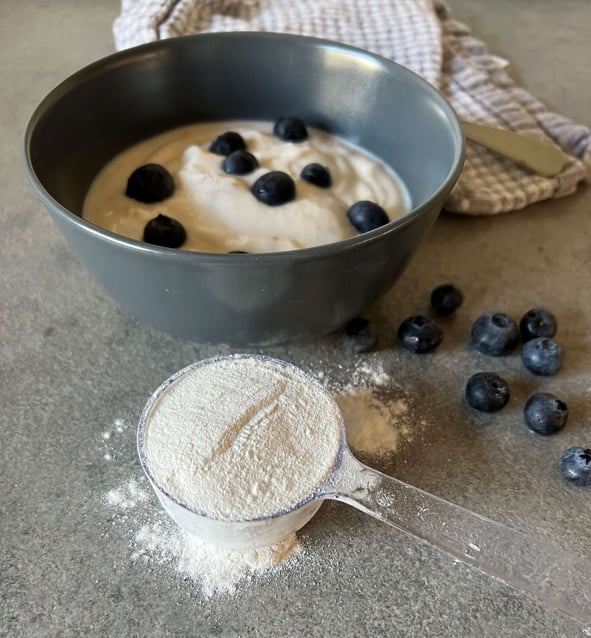
Made from starch and vegetable fibre, Palsgaard® AcidMilk 310 is developed for use in plant-based and dairy yoghurt. It provides the following advantages:
One of the challenges manufacturers have faced when making plant-based yoghurts is in replicating the creamy and smooth texture you would traditionally find with dairy yoghurts.
Palsgaard® AcidMilk 310, which can work across all types of plant-based yoghurts, can help enhance the appearance and creaminess of the product.
Marilyn says: “Palsgaard® AcidMilk 310 imparts a creamy consistency, and it helps create a good mouthfeel and one which is similar to dairy-based yoghurts. It also provides smoothness and glossiness.”
Palsgaard® AcidMilk 310 is a versatile stabiliser blend that works well in different types of plant-based yoghurts: stirred, drinkable yoghurt and ambient stable options. Producers will be able to launch various types of yoghurt using just one stabiliser blend and simply by adjusting the dosage of Palsgaard® AcidMilk 310 and tweaking the formulation accordingly. That will help to save them time and cut down on inventories as compared to if they were to source for other stabiliser blends suitable for different types of yoghurt.
In the past, many manufacturers of plant-based yoghurts have had to drop the clean label message in order to perfect their offerings.
But for those who choose to use the Palsgaard® AcidMilk 310 stabiliser blend, clean label is still a viable option, as Marilyn Tan notes:
“Palsgaard® AcidMilk 310 is a unique clean label solution that is composed of starch and vegetable fibre. It has no e-numbers, and it is plant-based, so it is perfect for your plant-based and clean label needs.”
There are several plant bases that can be used to create yoghurts, ranging from coconut to pea protein, and this makes the market exciting, but it also makes it more time-consuming for manufacturers. It can also mean dealing with a huge number of raw materials and sourcing these can result in longer lead times, as well as the risk of dealing with unreliable suppliers.
Marilyn adds: “Different plant proteins can give a different viscosity, taste and mouthfeel and so manufacturers often have to test many raw materials. This is something Palsgaard can help with, not only with our new stabiliser blend but also because we can offer technical support and we have done extensive research ourselves, especially in shelf-life studies, which can be time-consuming.”
Palsgaard can offer its Palsgaard® AcidMilk 310 as a single solution for several different plant-based yoghurt products, which makes the whole process simpler and more efficient.
The company also has manufacturing plants in three different global locations.
With Palsgaard® AcidMilk 310 manufacturers can be reassured the product will not display water separation and it will closely resemble dairy yoghurt in terms of its texture and mouthfeel.
Palsgaard® AcidMilk 310 is a stabiliser blend offered as one single solution, which can work across many plant bases, as well as different styles of yoghurts.
Marilyn adds: “Palsgaard is a reliable supplier of good quality products and with this single solution approach, the time it takes to launch a product can also be significantly reduced.”

TECHNICAL ARTICLE

TECHNICAL ARTICLE
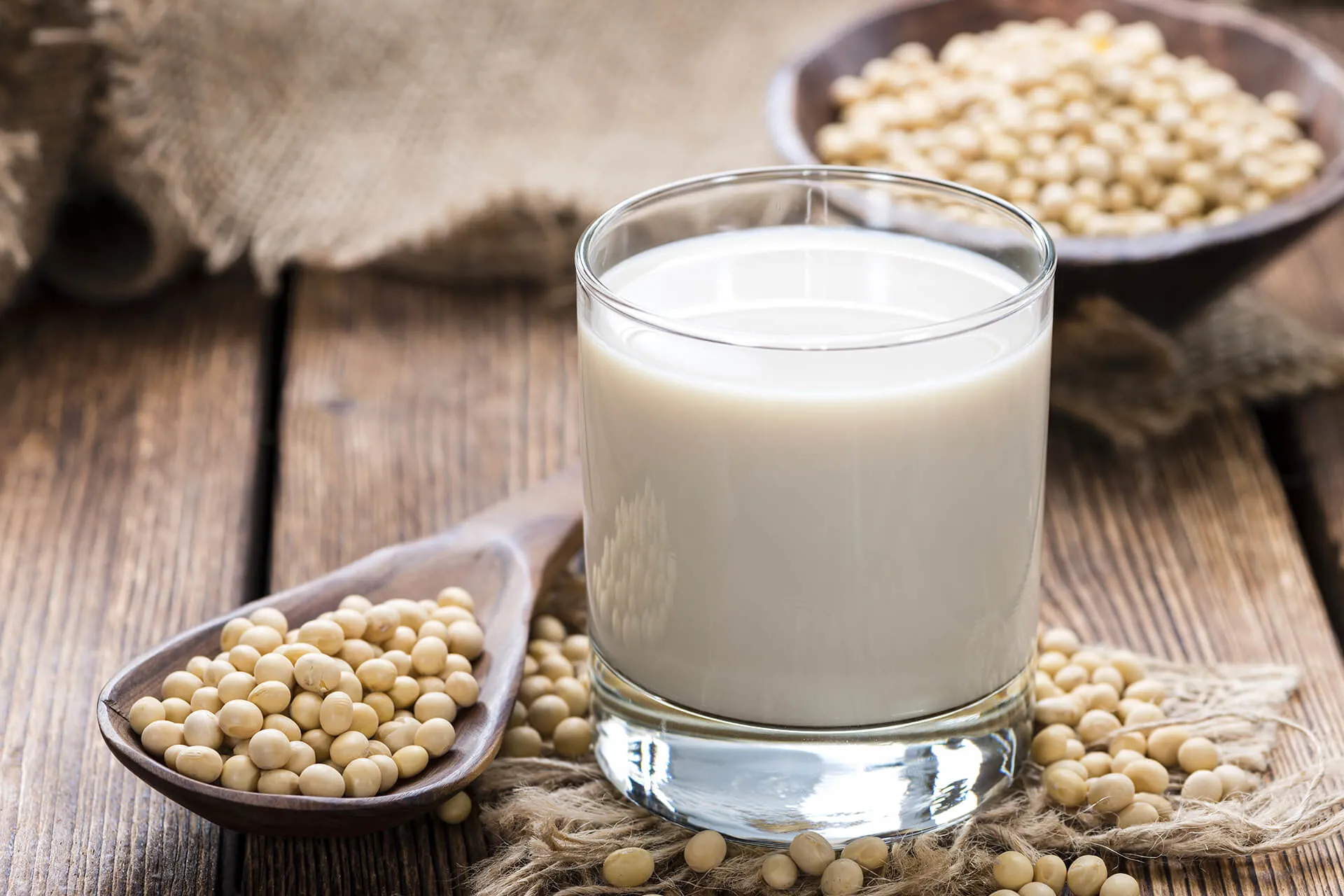
TECHNICAL ARTICLE
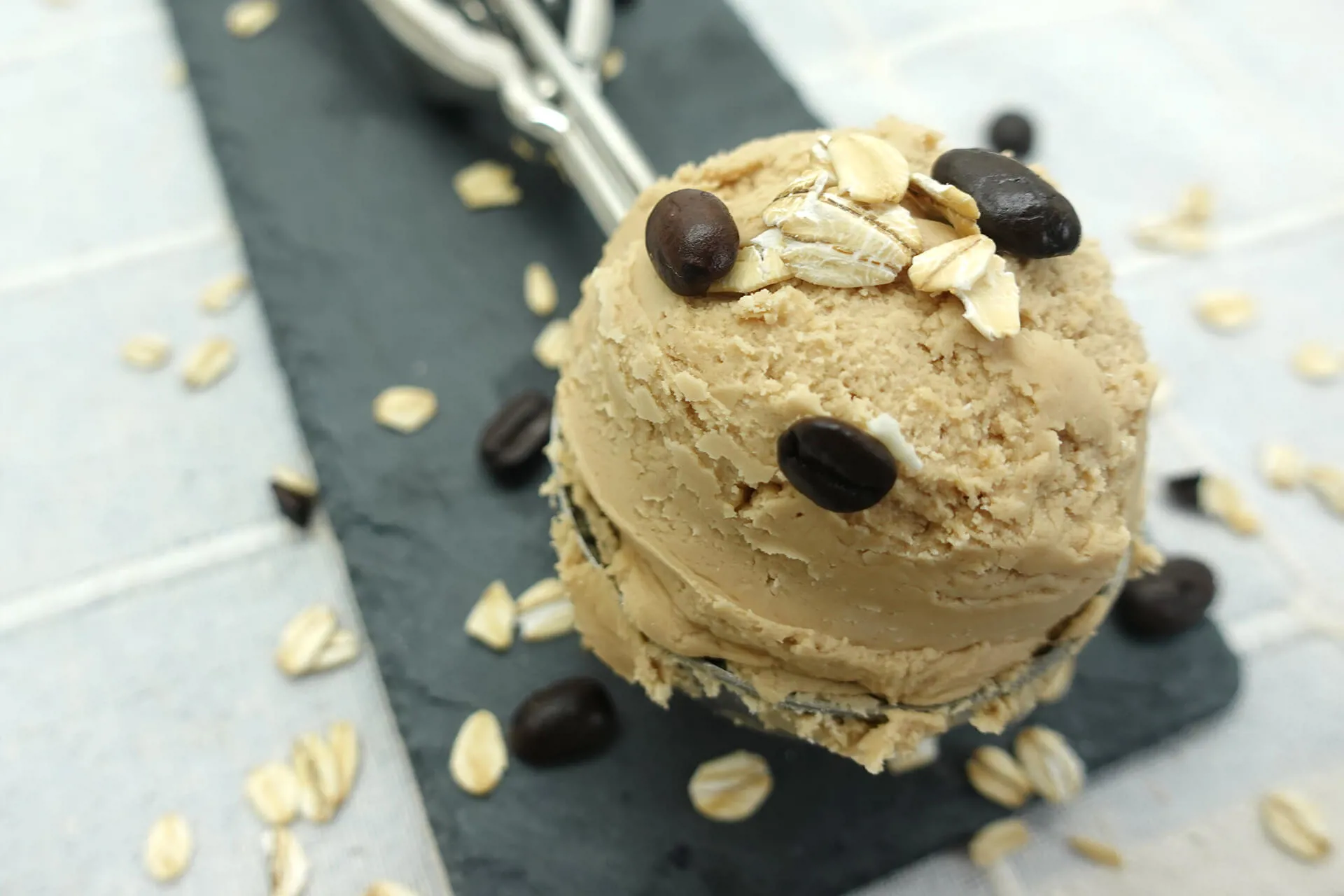
TECHNICAL ARTICLE
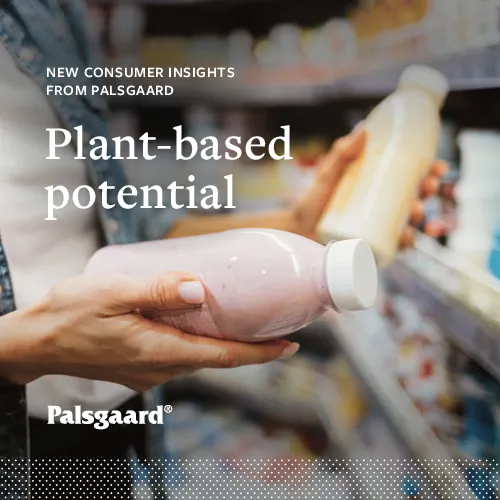
CONSUMER SURVEY